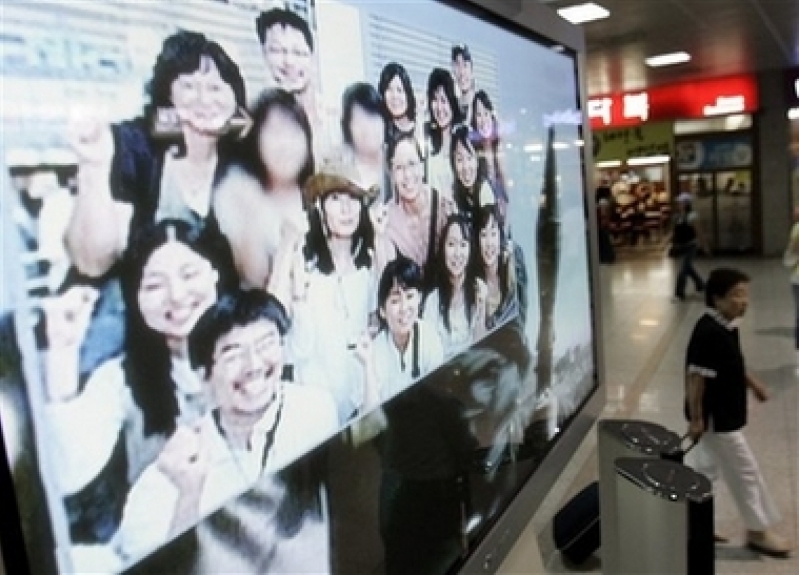
As the Korean hostage drama nears an end, debate over evangelism and questions about terrorism have re-emerged from the sidelines, promising to occupy attention long after the Korean hostage story fades out of the headlines.
The question over whether missionary activities should take place in dangerous territories was largely suppressed to focus on the release of the hostages held by Taliban militants since July 19. But discussion was reignited this week after the South Korean government pledged to stop Korean Christian missionary activities in Afghanistan as part of the deal to free the hostages.
Protestant organizations in South Korea have said they will respect the new law banning missionary activities in Afghanistan after voicing appreciation for the government’s effort in freeing the Christian volunteers.
The Korea National Council of Churches in a statement Tuesday night said it was “right to respect the government’s agreement with the Taliban,” according to Chosun Ilbo – the largest newspaper in South Korea.
Furthermore, the church body added that it will use the hostage crisis to reflect on Korean churches’ overseas mission strategies and formulate more effective as well as safer ways to conduct missionary activities abroad. South Korea is currently the world's second largest missionary sending nation after the United States.
Other South Korean bodies which vowed to respect the government’s agreement with the Taliban include the Christian Council of Korea and the Institute of Asian Culture and Development.
However, the head of the Institute of Asian Culture and Development, Choi Han-woo, noted that the Taliban apparently wanted to define missionary work to include Korean volunteer activities as well and “to justify their abduction,” according to Chosun Ilbo.
Still, Choi said his organization will pull out its workers from Afghanistan in compliance with the agreement.
Family members and the group’s home church in South Korea, meanwhile, have denied accusation that the captives were in Afghanistan for evangelism. They say instead that the group of volunteers was only offering free medical services to poor Afghans and was on its way to do just that when their bus was hijacked by Taliban militants on July 19.
Since kidnapping – the largest abduction of foreigners in Afghanistan since the fall of the Taliban regime in 2001 – two male hostages have been killed. The leader of the group, Bae Hyung-kyu, was found dead on July 25, and the body of 29-year-old Shim Sung-min was found July 30. Prior to the latest releases, two females – 37-year-old Kim Kyung-ja and 32-year-old Kim Ji-na – were freed on Aug. 13.
After the Taliban-South Korea agreement Tuesday, 12 more hostages were released on Wednesday.
The freed men have been identified as Go Se-hun and Yu Kyung-sik, and the women as Lee Sun-young, Im Hyun-ju, Yu Jung-hwa, Lee Ji-young, An Hye-jin, Lee Jung-ran, Han Ji-young, Seo Myung-hwa, Lee Ju-yun and Cha Hye-jin, according to The Korea Times.
South Korea, besides promising to ban Korean missionaries from Afghanistan, also pledged to pull out its 210 troops by the end of the year – a move it was already planning to make prior to the hostage crisis.
Although there were earlier reports that suggested the involvement of money in the negotiations, an Indonesian government official who took part in the negotiations Tuesday between three South Korean officials and two Taliban commanders where the deal was struck said money was not brought up.
"From what I saw and from what I heard in the talks, it was not an issue," Heru Wicaksono told The Associated Press.
While there has been much rejoicing over the latest release of hostages, not all are happy about the deal struck by the South Korean government and the group the United States and most of the world has labeled as terrorist.
Afghan commerce minister Amin Farhang told Germany’s Bayerischer Rundfunk radio that the agreement will make things more difficult for his country.
“One has to say that this release under these conditions will make our difficulties in Afghanistan even bigger, said Farhang, according to AP.
“We fear that this decision could become a precedent. The Taliban will continue trying to take hostages to attain their aims.”
However, South Korea has defended its efforts to save the remaining hostages and said it had not broken any international polices or laws.
“I don’t think we made a big deviation from the international community’s principle and practice,” said South Korean presidential spokesman Cheon Ho-sun.
“Other countries, when faced with this kind of problem, resolve the problem through contacts with kidnappers. I think there is no exception to this,” he said.
The hostage release deal was made through face-to-face talks between Taliban negotiators and South Korean delegates in Ghazni.
The Afghan government was not a part of the negotiations.





![[Exclusive Interview] A revelation within the brink of life and death — Meg Leung’s mission in Christian art](https://www.gospelherald.com/media/cache/thumbnail/7/21/72163sp_273w_150h_1x_1y.jpg)

